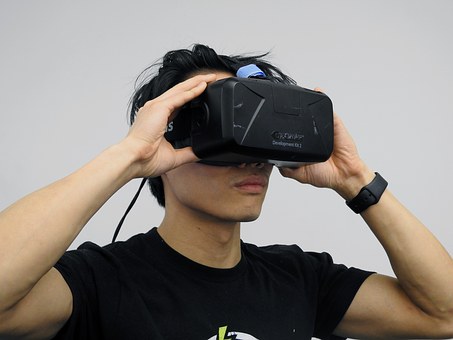How Technology Can Expand Creativity and Innovation in Education

Creativity has always been a part of a successful classroom, however recent advances in technology are making it possible to increase the ability for students to use their creativity in academia. With the ability to take and store thousands of pictures and videos, and listen to music in the palms of our hands, our students have the ability to be more and more creative in their projects, assignments, as well as group and individual tasks. As universities are encouraging the expansion and use of technology in the classroom, many professors are also encouraging the development of their students’ creative minds.
- Getting Creative Through Photographs and Video Projects
One way many professors and teaching assistants are using technology to help students get creative is through the use of devices and media that students already have! Almost all, if not all of today’s students have access to a photo and or video recording device. Professors can use digital media in projects for their students, regardless of the subject. By asking students to step outside their comfort zone and produce their own piece of media, we are asking students to be creative, to think in a variety of ways, and to apply their learning through the use of technology. Nicole Flynn writes on Cielo24 that the concept BYOD (or bring your own device) to class will increase the concept that students can use technology to enhance their own learning. The BYOD idea will likely take hold immediately within the next one to two years, states Nicole Flynn.
- Innovation and Creative Design in STEM Subjects
In STEM subjects, the use of technology and the need for creativity go hand-in-hand. Technology provides the opportunities for learners of STEM students to be more creative than ever before. Students have the opportunity to build virtual models of their devices, programs, robots, and other gadgets. According to Meghan Cortez, of EdTech Magazine, technology has enabled engineering students more opportunities than ever before to create and innovate. In the future, we can look for advances in robotic technology through “Generation Z,” the name of our current generation growing up with technology. The article “Technology Can Help Expand Creativity,” discusses how Generation Z students believe that learning to use technology in a creative way is essential to being career-ready.
- Video Game Design, Film Animation and Media Development
As professors are being given more freedom in the classroom to design lessons, learning materials, and assignments, professors are also able to encourage and support students in the dual use of technology and creativity, according to Norman Jackon. Technology is also advancing growth in the gaming industry, as technology related to game design and program development is developing at a rapid pace. Video game design students, computer programming students, and students are able to access today’s technology and information about programming to create and innovate new ideas, games, and solutions to every-day problems. In game and software development, technology thrives where creativity is present, and vice versa; creativity thrives where technology is present.
- The Makerspace Movement: Changing Our Creative Spaces
Another way that technology is changing our classrooms in universities and colleges is the recent trend called Makerspaces. Makerspaces are designated spaces in libraries, in labs, on college campuses, and in other learning centers for artisans, scientists, and learners to engage using given space, materials and supplies. Makerspaces, according to Nicole Flynn, will become a significant part of the learning process in academic spaces within the next three to five years. Makerspaces will provide space for students and teachers to collaborate and learn by engaging with building materials such as advanced 3D printers and laser cutters and even simple tools such as plywood, a hammer, and nails.
- Encouraging Ideas and Growth Through Social Media
Social media is also encouraging creativity among our current generation of students. Through social media programs such as Tumblr, Pinterest, and Instagram, students are combining technology with inspiration, to create a wealth of resources and information available globally. Students in higher education are able to innovate, engage in online discussions, and share creativity through social media platforms. Through these platforms students can share ideas with each other, collaborate, and keep even their professors on their toes!
Regardless of the types of media that professors introduce, and students suggest, use, and implement, technology is taking hold in our universities to expand opportunities for the use of creativity inside and outside the classroom. Often times students can contribute new ideas to discussions and development regarding creative design, STEM learning, robotics, film animation, game design, and other arts. As we advance into the 21st Century, we are all learners. We can all make use of both the left and right sides of our brain to advance the technology we already possess by using our creativity.





